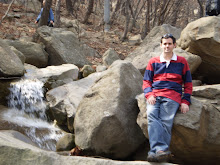 This week, the Judicial Research and Training Institute (the finishing school for all Korean law students) has ordered one of its graduating trainees to do 300 hours of community service and graduate late. This is because the trainee sent transcripts to potential employers in which he fakes his grades. He accomplished this by manually editing the document, scanning it, and printing it.
This week, the Judicial Research and Training Institute (the finishing school for all Korean law students) has ordered one of its graduating trainees to do 300 hours of community service and graduate late. This is because the trainee sent transcripts to potential employers in which he fakes his grades. He accomplished this by manually editing the document, scanning it, and printing it.What struck me first and most forcefully was what I would call the incredible leniency shown to him. Besides giving the student such a light penalty when even disbarment might be reasonable, the institute and the press have kept the student's identity secret. Well, not including the places he sent those bogus transcripts, and anyone they see fit to tell about it.
However corny this may sound, given the jokes I'm told people make about our profession, the legal profession is one that relies on individual integrity to work. How can a lawyer who would lie at such a basic and elemental level be trusted later in his career, when the stakes get really high? I have to wonder: did the institute consider that this move suggests to the people of Korea how indispensable it finds integrity among the attorneys it sends out into society?











